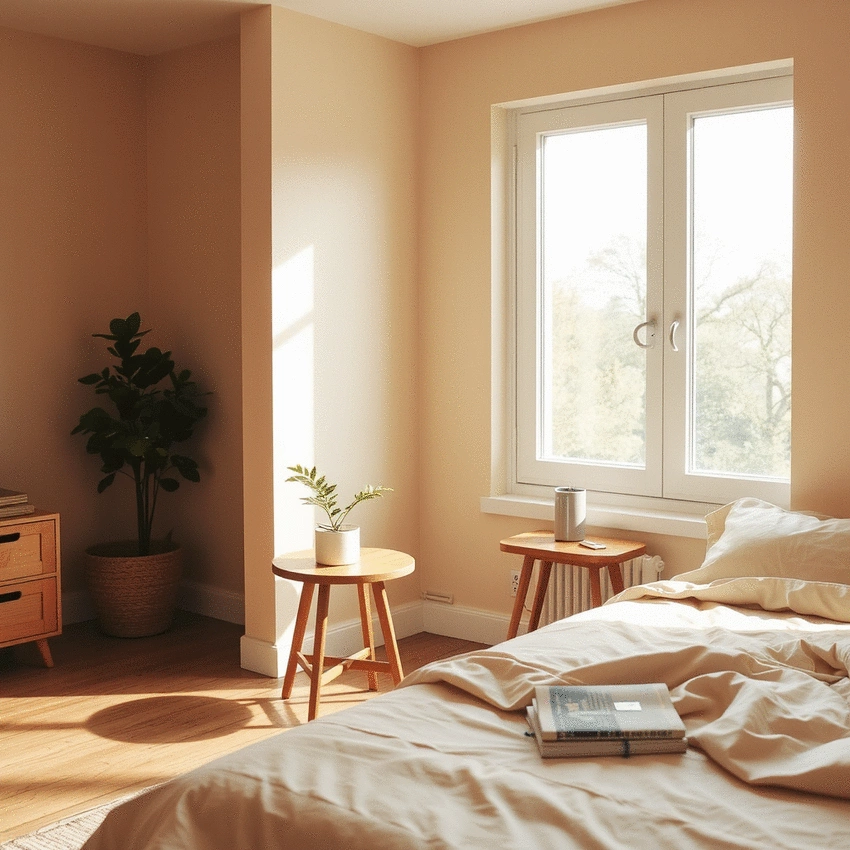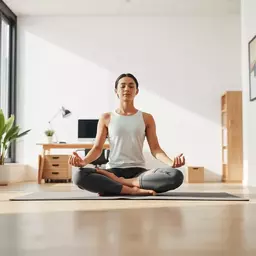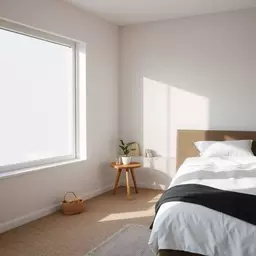Downsizing: Crafting Your Moving Budget
By Marina Hargrove / Feb 22
As you embark on the journey of downsizing and embracing a simpler lifestyle, consider this: simplifying your life can not only declutter your space but also your mind, leading to a more intentional and fulfilling existence. What motivates you to pursue this change? Understanding your core values is the first step towards achieving that goal.
Here are the key areas where embracing a simpler lifestyle can significantly improve mental health:
A cleaner environment enhances clarity of thought and boosts productivity levels.
Less clutter around you can help in managing your emotional responses to life's challenges.
Embracing simplicity helps individuals feel more in control of their lives.
A decluttered space can contribute to lower levels of stress and anxiety.
When I think about downsizing and embracing a simpler lifestyle, I often reflect on the motivations that guide us through this transformative journey. For many, the desire to simplify stems from a wish for greater peace and clarity in life. It’s intriguing how shedding the excess can lead to a more focused and intentional existence, allowing us to reconnect with what truly matters.
At Downsizing Diaries, I believe understanding our personal motivations is the first step toward living intentionally. Take a moment to ask yourself: What do you truly value? It might be quality time with family, a career you’re passionate about, or simply a peaceful home environment. By identifying these core values, you can start to align your life with what you hold dear, making the transition to a simpler lifestyle feel empowering rather than daunting. For more insights on decluttering, read our guide on conquering clutter to ease your downsizing.
Identifying personal values is key to intentional living. Begin by creating a list of what’s most important to you. Consider the following questions:
Once you have your list, rank these values in order of importance. This exercise can illuminate areas of your life that need more attention and those that may be taking up space unnecessarily. Remember, simplification is about making room for what brings you happiness, and by identifying your values, you can take the first step toward achieving that goal.
Embracing simplicity isn't just about decluttering physical items; it's also about enhancing mental well-being. Studies show that reducing clutter can lead to less stress and anxiety. You might feel a weight lifted as you clear out unnecessary distractions, allowing for a peaceful mind.
Furthermore, a simpler lifestyle can enhance your focus and creativity. When your environment is tidy and minimal, your mind can think more clearly. It’s like a breath of fresh air! Here are a few ways embracing simplicity can benefit your mental health:
Overall, as we begin this journey together, I hope you can find comfort and joy in embracing a simpler lifestyle. Let Downsizing Diaries be your companion in this process, guiding you to a more fulfilling and intentional way of living.
Here's a brief recap of the key points discussed so far:
Transitioning to a simpler lifestyle can stir up a whirlwind of emotions, and I’ve seen this firsthand through my work at Downsizing Diaries. Many of us grapple with the expectations society places on us regarding minimalism. It’s not uncommon to feel like you’re being judged for choosing a simpler life, especially when friends and family might not understand your journey. However, acknowledging these social pressures is a vital step in overcoming them! For further guidance on handling your feelings during this time, explore coping with downsizing emotions.
As you embark on this path, it’s essential to remind yourself that your journey is uniquely yours. Take a moment to reflect on why you've chosen this lifestyle: is it for clarity, peace, or a sense of freedom? Embracing your personal motivations can help you stay grounded amid external opinions. Here are some strategies to help you navigate social pressures:
Throughout your downsizing journey, it's natural to experience a rollercoaster of emotions. One day, you might feel excited about the possibilities, while the next could bring feelings of doubt or nostalgia for the items you are letting go. Staying motivated during these ups and downs is crucial! I find that regularly reconnecting with your goals can renew your focus.
Consider keeping a journal to document your experiences. Writing about your feelings can provide clarity and help you process the emotional components of downsizing. Here are a few techniques that have helped others maintain their motivation:
Once you've started decluttering, it's essential to measure your progress. Celebrating small wins can be incredibly rewarding and will motivate you to keep going. As I often remind clients, *downsizing is a journey, not a destination*! Setting long-term goals for a simplified lifestyle can help you navigate this journey more effectively.
Consider breaking down your goals into manageable steps. Here’s how you can establish long-term goals:
Effective tracking of your journey is crucial to ensure you remain focused on your goals. You might find that using a combination of tools is beneficial. Whether you prefer digital platforms or good old-fashioned pen and paper, keep it simple and accessible!
Here are some tools and techniques to consider for reflection:
Creating new habits can be challenging, but it’s also incredibly rewarding! At Downsizing Diaries, I encourage individuals to focus on consistency rather than perfection. Start with small changes and build on them over time. Here are some strategies that can help you form lasting habits:
As you delve deeper into your simplicity journey, remember to start small. It’s perfectly okay to take your time as you explore what a simplified life means for you. I often share with clients that every little step counts, so don’t overlook the small victories!
Consider these actionable steps to begin your journey:
Learning never stops, especially when it comes to embracing a simpler lifestyle. I encourage you to seek out resources that resonate with you. There are countless books, blogs, and communities that focus on minimalism and simple living. Here’s a list of resources that have inspired many:
Finally, I want to touch on the concept of slow living. Embracing slow living allows you to savor life’s moments and reconnect with what truly matters. It’s not about rushing; instead, it’s about enjoying the journey. Consider incorporating slow living practices into your daily routine, such as:
As you navigate this transition, don’t forget the importance of self-care! Prioritizing your emotional and mental well-being is crucial, especially during times of change. Simple acts of self-care can rejuvenate your spirit and keep you motivated. Consider integrating these practices:
By embracing these strategies, you’ll find yourself well-equipped to tackle emotional challenges and maintain focus in your downsizing journey. Remember, it’s about progress, not perfection, and every step you take brings you closer to a simpler, more fulfilling life! If you're considering downsizing for a simpler retirement, these principles are especially valuable.
Here is a quick recap of the important points discussed in the article:

 Downsizing: Crafting Your Moving Budget
As the saying goes, "The first step towards getting somewhere is to decide you're not going to stay
Downsizing: Crafting Your Moving Budget
As the saying goes, "The first step towards getting somewhere is to decide you're not going to stay
 Mindfulness in Downsizing Support
In a world where change is constant, the emotional toll of downsizing can be profound. How do we sup
Mindfulness in Downsizing Support
In a world where change is constant, the emotional toll of downsizing can be profound. How do we sup
 Live Better by Downsizing
Have you ever felt overwhelmed by the sheer amount of stuff in your life? Downsizing your belongings
Live Better by Downsizing
Have you ever felt overwhelmed by the sheer amount of stuff in your life? Downsizing your belongings